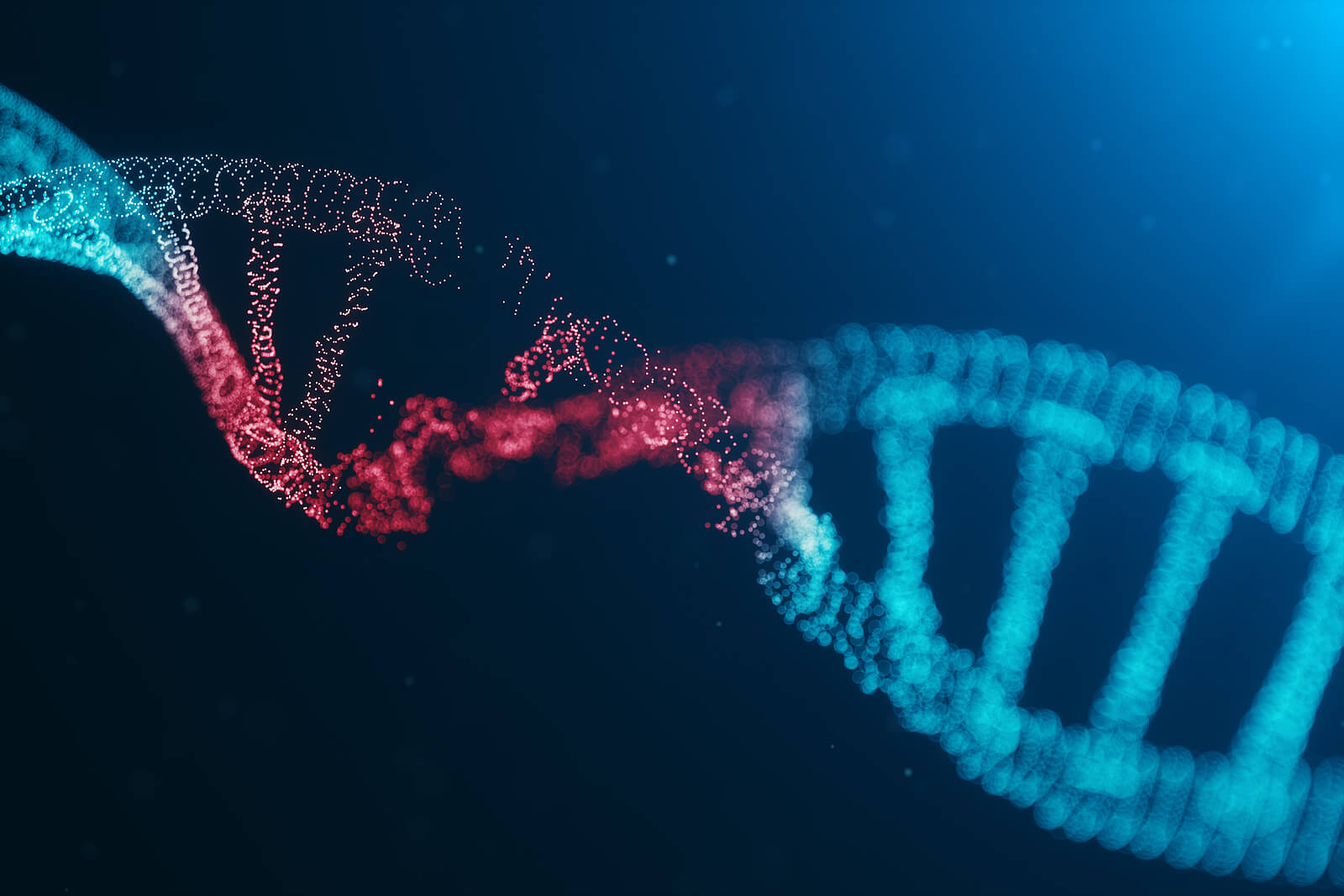Causes and Risk Factors of Hypertension

High blood pressure (also called hypertension) develops when the pressure exerted on the walls of the blood vessels is higher than the conventional one. The causes of high blood pressure have not yet been defined, although it’s known that some diseases and habits encourage its appearance. The genetic component is also believed to play an important role. Stay with us as we look at the causes and risk factors of hypertension.
High blood pressure usually manifests itself when a person suffers from more than one condition, illness, or disease. Heart conditions, kidney problems, endocrine imbalances and health problems in the arteries are the most frequent. A long-term treatment prevents general complications, as well as the change of some habits in our day to day lives.
Causes of hypertension
Broadly speaking, no specific causes of hypertension have been found. As a percentage, the chances of developing it are higher as you age and we know that some diseases can cause it as a side effect.
However, this all depends on the type of hypertension. Two are usually distinguished: primary (or essential) and secondary. Below we review what we know about them:
Causes of primary hypertension

Primary or essential hypertension is one for which there’s no known cause. Although studies have been developed over the last few decades, there’s no consensus on the catalysts that can promote their appearance. Although its causes can’t be explained, it is a condition that can be treated with the help of antihypertensive medications.
It has been shown that essential high blood pressure can have a significant genetic component, around 30%, although the genes responsible for it haven’t yet been identified. It develops over the years and, if not treated properly, can lead to problems with the heart, kidneys, and endocrine system.
Causes of secondary hypertension
This is known as secondary hypertension because it originates due to an underlying disorder. It’s estimated that between 5% and 10% of diagnoses of the condition are of secondary cause. It’s common for it to appear suddenly, and also for the values to be higher than with the primary variant.
Among the causative factors of secondary hypertension, we can highlight the following:
- Obstructive sleep apnea: Studies have accounted for the relationship between apnea and the development of hypertension. Changes that occur during an episode can cause nocturnal hypertension, which progresses to diurnal due to sympathetic activation, oxidative stress, inflammation, and endothelial dysfunction.
- Kidney disease: There’s a paradox between kidney disease and high blood pressure. Studies and research indicate that the latter can be both a consequence and a cause of the former.
- Thyroid problems: It is also documented the link between thyroid disorders as a cause of hypertension. High blood pressure episodes can be caused by both hyperthyroidism and hypothyroidism.
- Tumors in the adrenal gland: Although it’s less common than the others, there is also evidence that a tumor in these glands can lead to the condition.
Other alterations that can be the causes of hypertension are the intake of certain medications, recreational drugs, diabetes, and heart conditions.
As we indicated, this represents about 10% of diagnoses, which means that 90% of cases don’t have a delimited origin. However, risk factors can alert you to a possible development.
Risk factors of hypertension

As with other types of disease, habits can be triggers for hypertension. Several of them have been identified, which are divided into modifiable and non-modifiable. Among the main ones we have the following:
- Obesity or excess weight: Being overweight or obese is a major factor in the development of high blood pressure. The link has been carefully studied and is believed to be part of the response to the high rates of diagnosis of the disease. Take into account that the WHO says that today there are 1.130 million hypertensive patients.
- Intake of tobacco and alcohol: It is documented that people who ingest alcohol or tobacco in relatively large amounts have higher blood pressure. Its reduction is related to a decrease in these values.
- Physical inactivity: A sedentary lifestyle is the trigger for many health problems. It is proven that the lack of physical inactivity can be, along with other factors, a trigger for hypertension. In contrast, exercise has been linked to a natural control of pressure levels in the arteries.
- Unbalanced diet: Especially one in which sodium is concentrated above recommended levels. A diet based on this and with high caloric and lipid values triggers a series of physiological disorders that result in alterations in blood pressure.
- Age: As we have already indicated, aging is a risk factor for the development of this disease. It is related to a natural deterioration in the flexibility of the blood vessels, greater sensitivity to sodium, and hormonal changes (such as menopause or andropause).
- Family history: Given the genetic component of the disease, the chances of suffering from hypertension increase if one or both parents suffer from it. Family history can also be carried over to an older generation.
- Stress: Research and studies have shown that stress and other psychosocial disorders can cause the development of the disease. Generally, it cannot be determined to be a primary cause, but it does combine with others to create physiological responses.
Another of the risk factors of hypertension is a low intake of potassium. The fact that you have one or more of these doesn’t mean that you’ll develop the disease in the future, but it does mean that your chances are slightly higher than those who don’t.
Although we can’t say that hypertension is preventable, reversing modifiable risk factors is helpful for those at risk. If you have a family history, are overweight, or suffer from chronic conditions like diabetes, then you should pay attention to your blood pressure levels.
It is recommended that all adults check their blood pressure levels at least once a year. The frequency should increase as you get older. If possible, call on a specialist annually to assess the levels in a general way.
Remember that this condition often doesn’t cause symptoms, a characteristic that has earned it its nickname as the silent killer.
High blood pressure (also called hypertension) develops when the pressure exerted on the walls of the blood vessels is higher than the conventional one. The causes of high blood pressure have not yet been defined, although it’s known that some diseases and habits encourage its appearance. The genetic component is also believed to play an important role. Stay with us as we look at the causes and risk factors of hypertension.
High blood pressure usually manifests itself when a person suffers from more than one condition, illness, or disease. Heart conditions, kidney problems, endocrine imbalances and health problems in the arteries are the most frequent. A long-term treatment prevents general complications, as well as the change of some habits in our day to day lives.
Causes of hypertension
Broadly speaking, no specific causes of hypertension have been found. As a percentage, the chances of developing it are higher as you age and we know that some diseases can cause it as a side effect.
However, this all depends on the type of hypertension. Two are usually distinguished: primary (or essential) and secondary. Below we review what we know about them:
Causes of primary hypertension

Primary or essential hypertension is one for which there’s no known cause. Although studies have been developed over the last few decades, there’s no consensus on the catalysts that can promote their appearance. Although its causes can’t be explained, it is a condition that can be treated with the help of antihypertensive medications.
It has been shown that essential high blood pressure can have a significant genetic component, around 30%, although the genes responsible for it haven’t yet been identified. It develops over the years and, if not treated properly, can lead to problems with the heart, kidneys, and endocrine system.
Causes of secondary hypertension
This is known as secondary hypertension because it originates due to an underlying disorder. It’s estimated that between 5% and 10% of diagnoses of the condition are of secondary cause. It’s common for it to appear suddenly, and also for the values to be higher than with the primary variant.
Among the causative factors of secondary hypertension, we can highlight the following:
- Obstructive sleep apnea: Studies have accounted for the relationship between apnea and the development of hypertension. Changes that occur during an episode can cause nocturnal hypertension, which progresses to diurnal due to sympathetic activation, oxidative stress, inflammation, and endothelial dysfunction.
- Kidney disease: There’s a paradox between kidney disease and high blood pressure. Studies and research indicate that the latter can be both a consequence and a cause of the former.
- Thyroid problems: It is also documented the link between thyroid disorders as a cause of hypertension. High blood pressure episodes can be caused by both hyperthyroidism and hypothyroidism.
- Tumors in the adrenal gland: Although it’s less common than the others, there is also evidence that a tumor in these glands can lead to the condition.
Other alterations that can be the causes of hypertension are the intake of certain medications, recreational drugs, diabetes, and heart conditions.
As we indicated, this represents about 10% of diagnoses, which means that 90% of cases don’t have a delimited origin. However, risk factors can alert you to a possible development.
Risk factors of hypertension

As with other types of disease, habits can be triggers for hypertension. Several of them have been identified, which are divided into modifiable and non-modifiable. Among the main ones we have the following:
- Obesity or excess weight: Being overweight or obese is a major factor in the development of high blood pressure. The link has been carefully studied and is believed to be part of the response to the high rates of diagnosis of the disease. Take into account that the WHO says that today there are 1.130 million hypertensive patients.
- Intake of tobacco and alcohol: It is documented that people who ingest alcohol or tobacco in relatively large amounts have higher blood pressure. Its reduction is related to a decrease in these values.
- Physical inactivity: A sedentary lifestyle is the trigger for many health problems. It is proven that the lack of physical inactivity can be, along with other factors, a trigger for hypertension. In contrast, exercise has been linked to a natural control of pressure levels in the arteries.
- Unbalanced diet: Especially one in which sodium is concentrated above recommended levels. A diet based on this and with high caloric and lipid values triggers a series of physiological disorders that result in alterations in blood pressure.
- Age: As we have already indicated, aging is a risk factor for the development of this disease. It is related to a natural deterioration in the flexibility of the blood vessels, greater sensitivity to sodium, and hormonal changes (such as menopause or andropause).
- Family history: Given the genetic component of the disease, the chances of suffering from hypertension increase if one or both parents suffer from it. Family history can also be carried over to an older generation.
- Stress: Research and studies have shown that stress and other psychosocial disorders can cause the development of the disease. Generally, it cannot be determined to be a primary cause, but it does combine with others to create physiological responses.
Another of the risk factors of hypertension is a low intake of potassium. The fact that you have one or more of these doesn’t mean that you’ll develop the disease in the future, but it does mean that your chances are slightly higher than those who don’t.
Although we can’t say that hypertension is preventable, reversing modifiable risk factors is helpful for those at risk. If you have a family history, are overweight, or suffer from chronic conditions like diabetes, then you should pay attention to your blood pressure levels.
It is recommended that all adults check their blood pressure levels at least once a year. The frequency should increase as you get older. If possible, call on a specialist annually to assess the levels in a general way.
Remember that this condition often doesn’t cause symptoms, a characteristic that has earned it its nickname as the silent killer.
- Agarwal, A., Williams, G. H., & Fisher, N. D. Genetics of human hypertension. Trends in Endocrinology & Metabolism. 2005; 16(3): 127-133.
- Barri, Y. M. Hypertension and kidney disease: a deadly connection. Current hypertension reports. 2008; 10(1): 39-45.
- Berta, E., Lengyel, I., Halmi, S., Zrínyi, M., Erdei, A., Harangi, M., … & Bodor, M. Hypertension in thyroid disorders. Frontiers in endocrinology. 2019; 10: 482.
- Atwell, T. D., Wass, C. T., Charboneau, J. W., Callstrom, M. R., Farrell, M. A., & Sengupta, S. Malignant hypertension during cryoablation of an adrenal gland tumor. Journal of vascular and interventional radiology. 2006; 17(3): 573-575.
- Friedman, G. D., Klatsky, A. L., & Siegelaub, A. B. Alcohol, tobacco, and hypertension. Hypertension. 1982; 4(5_pt_2): III143.
- Liu, M. Y., Li, N., Li, W. A., & Khan, H. Association between psychosocial stress and hypertension: a systematic review and meta-analysis. Neurological research. 2017; 39(6): 573-580.
- Martins, L. C. G., de Oliveira Lopes, M. V., Guedes, N. G., Diniz, C. M., & de Oliveira Carvalho, P. M. Sedentary lifestyle in individuals with hypertension. Revista brasileira de enfermagem. 2015; 68(6): 697-704.
- Messerli, F. H., Williams, B., & Ritz, E. Essential hypertension. The Lancet. 2007; 370(9587): 591-603.
- Nuraini, B. (2015). Risk factors of hypertension. Jurnal Majority. 2015; 4(5).
- Nguyen, T., & Lau, D. C. The obesity epidemic and its impact on hypertension. Canadian Journal of Cardiology. 2012; 28(3): 326-333.
- Pescatello, L. S., Franklin, B. A., Fagard, R., Farquhar, W. B., Kelley, G. A., & Ray, C. A. Exercise and hypertension. Medicine & Science in Sports & Exercise. 2004; 36(3): 533-553.
- Phillips, C. L., & O’Driscoll, D. M. Hypertension and obstructive sleep apnea. Nature and science of sleep. 2013; 5: 43.
- Rimoldi, S. F., Scherrer, U., & Messerli, F. H. Secondary arterial hypertension: when, who, and how to screen?. European heart journal. 2014; 35(19): 1245-1254.
- Ritz, E. Hypertension and kidney disease. Clinical nephrology. 2010; 74: S39-43.
- Sparrenberger, F., Cichelero, F. T., Ascoli, A. M., Fonseca, F. P., Weiss, G., Berwanger, O., … & Fuchs, F. D. Does psychosocial stress cause hypertension? A systematic review of observational studies. Journal of human hypertension. 2009; 23(1): 12-19.
Este texto se ofrece únicamente con propósitos informativos y no reemplaza la consulta con un profesional. Ante dudas, consulta a tu especialista.







